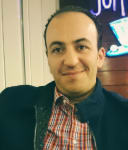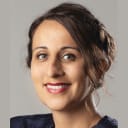Enroll your children in school
 Proposed by Comité de la Démarche Accessible Updated on il y a 2 ans
Proposed by Comité de la Démarche Accessible Updated on il y a 2 ansIn France, children go to school from the age of 3. School is compulsory for children aged 6 to 16. Public school is free . Children who do not speak French are also welcomed in schools. There are also private schools, but they are not free.
If you have children, you must enroll them in school . The process varies according to the age of the children:
- from 3 to 5 years old, children go to nursery school,
- from 6 to 10 years old, children go to primary school (or elementary school),
- from 11 to 14 years old, children go to college ,
- from 15 to 18 years old, children go to high school or other structures depending on their level of education.
School organization
Children go to school all day, Monday to Friday and sometimes Saturday mornings. Hours vary from one school to another. In middle and high school, schedules can change every day. In nursery and primary school, they are fixed. There is never a school on Saturday afternoon, nor on Sunday. In some schools there is no school on Wednesdays.
The school year is organized in terms. The 1st quarter ends in December, the 2nd quarter ends in March and the 3rd quarter ends in June. At the end of each term, the "class council" (made up of teachers in particular) meets to assess the students. Parents are then informed of their children's results: they receive the “quarterly bulletin” or for small classes, the “school booklet” .
Canteen and childcare
Children can have lunch at school or at home. When children have lunch at school, they eat their meals “ in the canteen” (it is also said that they are on “half-board”).
In kindergarten and primary school, it is possible to bring children early and pick them up later after school. It is useful if the parents are working sooner or later. During this care time, activities can be offered to the children.
Childcare is also offered when there is no school on Wednesdays and during a large part of “school holidays”.
The canteen and childcare before or after school are not compulsory. They are chargeable . The price depends on the parents' income. This is called “ extracurricular activities ”. These activities require additional registration, often at the town hall.
How to do it?
What happens next?
13 contributors mobilized
 nour
nourAdmin
 a mugnier
a mugnierAdmin
 diplosamTranslator
diplosamTranslator hichamTranslator
hichamTranslator utilisateur_2134382Writer
utilisateur_2134382Writer kerrianTranslator
kerrianTranslator noorTranslator
noorTranslator olga b.Translator
olga b.Translator fatma bouhejbaTranslator
fatma bouhejbaTranslator rohullah expertTranslator
rohullah expertTranslator niknameTranslator
niknameTranslator kim.delaunayTranslator
kim.delaunayTranslator marianneukraineTranslator
marianneukraineTranslator
